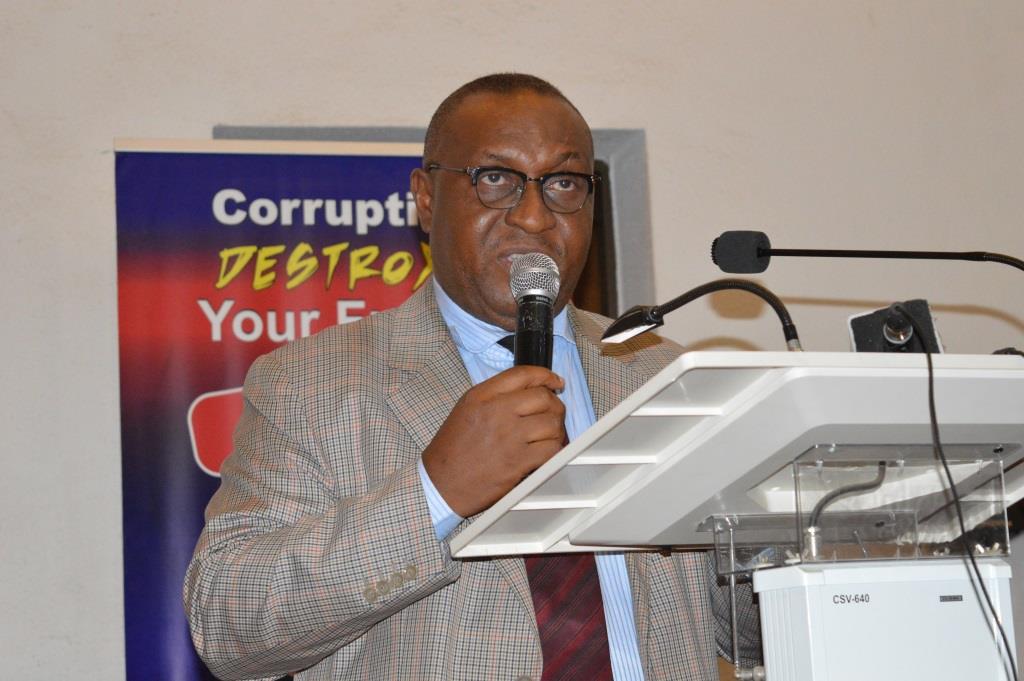The Chairman of the Independent Corrupt Practices and Other Related Offences Commission (ICPC), Mr. Ekpo Nta, has charged officials of examination bodies and education stakeholders in the country to design a holistic anti-corruption strategy for the education sector.
Mr. Nta, who was represented by the Secretary to the Commission, Dr. Elvis Oglafa, made this charge while addressing participants at an anti-corruption sensitization programme for stakeholders in the education sector at the ICPC headquarters, Abuja.
The ICPC Chairman said that the Commission was very concerned about the various acts of corruption associated with the conduct of public examinations, adding that there had been a lot of petitions from both foreign and local sources concerning the malaise, and that the Commission had resolved to root out the problem.
He told the participants who were drawn from WAEC, JAMB, NECO, NSCDC, the Federal Ministry of Education, Nigerian Police Force, Non-governmental organisations, National Business and Technical Examination Board (NABTEB), National Association of Parents Teachers Association (NAPTAN) etc. that the forum was not aimed at apportioning blames, but to find ways of eradicating the problem in order to improve the Nigerian public examinations system.
Mr. Nta recalled that ICPC had carried out a similar exercise in the tertiary education sector in 2013, in partnership with the National Universities Commission (NUC), to address multiple corruption prone-processes in the sector, which had helped to solve the problem of illegal degree-awarding ‘mills’. According to him, many of such institutions were closed down while some of their sponsors were being prosecuted in court.
Earlier in his welcome address, the Head of Education Department, ICPC, Mr. Geoffrey Anumve, emphasized the importance ICPC places on the education of children and youths in the country and explained that the programme was aimed at tackling the challenges of examination malpractice, academic dishonesty and such forms of corruption in the education sector in order to ensure that the country’s educational system was in line with internationally accepted best practices.
He hoped that the participants would contribute meaningfully and actively towards the strengthening of the educational system for national progress.
Also speaking at the event, the Chief Registrar of NABTEB, Prof. (Mrs.) Ifeoma Isiugo, noted that the Board had already begun to implement measures to help check examination malpractice. She listed some of the measures to include the use of bio-metrics/e-registration for candidates ; good sitting arrangement of 1.2 meters apart for candidates; appointment of credible and qualified supervisors, invigilators and examiners; involvement of credible custodians of examination materials e.g. banks and the police ; etc.
Another stakeholder, Mr. Ike Onyechere, founder Exam Ethics Marshall International, an NGO, proposed that ICPC establish an examination malpractice desk in educational institutions and a task force as part of the solution to the problem.

